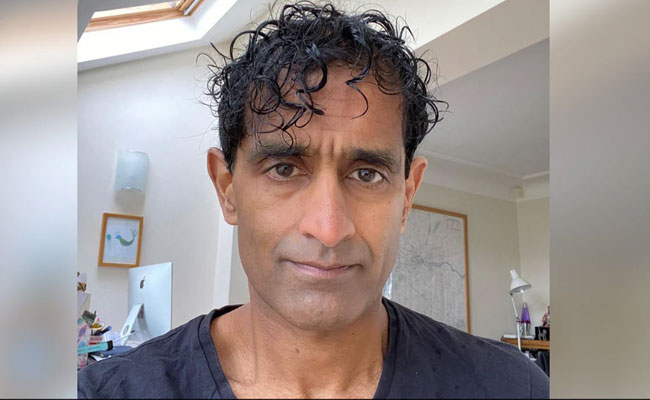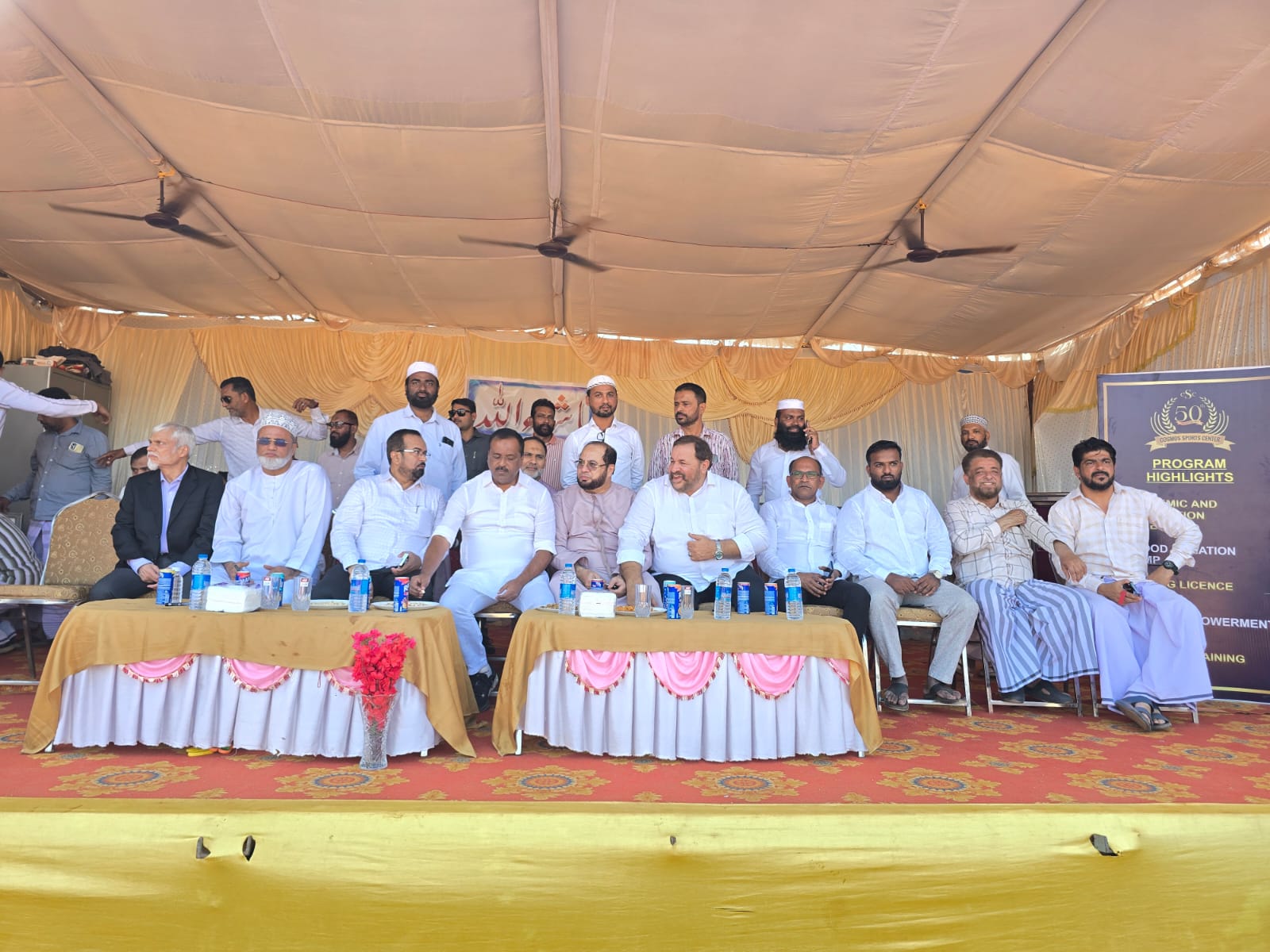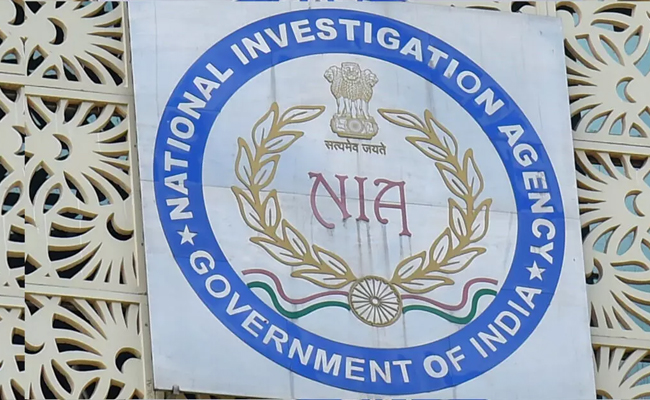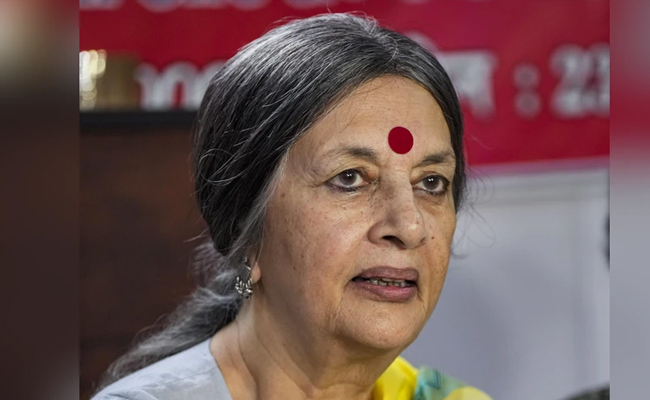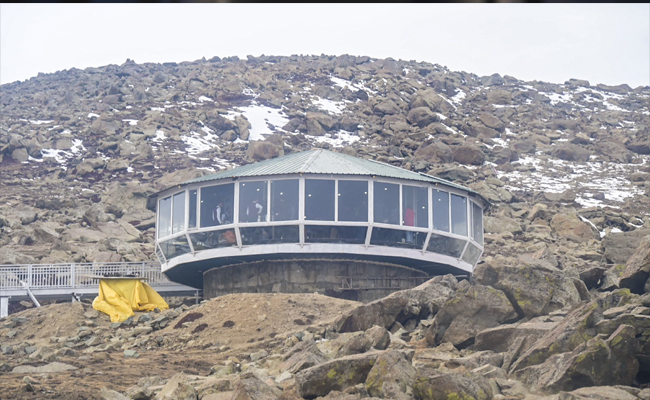London (PTI): A UK-born Indian-origin consultant paediatrician at a hospital in northern England is among those who raised concerns and helped convict a nurse found guilty of killing seven babies by a UK court on Friday.
Dr Ravi Jayaram, from the Countess of Chester Hospital in Chester, said some of those lives could have been saved if his concerns about former nurse colleague Lucy Letby had been heeded and the police alerted sooner.
Letby, 33, was found guilty of the murder of seven newborn babies and also found guilty of seven counts of attempted murder relating to six other babies by a jury at Manchester Crown Court. She will be sentenced at the same court on Monday.
"I do genuinely believe that there are four or five babies who could be going to school now who aren't," Dr Jayaram told ITV News' in a television interview after the verdict.
He told the channel that consultants first began raising concerns after three babies died in June 2015. As more babies collapsed and died, senior medics like him held several meetings with hospital executives to raise their concerns about Letby.
Eventually, it was in April 2017 that the National Health Service (NHS) trust allowed doctors to meet with a police officer.
"The police, after listening to us for less than 10 minutes, realised that this is something that they had to be involved with. I could have punched the air," said Dr Jayaram.
Shortly afterwards, an investigation was launched that would lead to Letby's arrest.
The UK's Crown Prosecution Service (CPS) told the court that Letby used a variety of methods to secretly attack a total of 13 babies in the neonatal ward at the Countess of Chester hospital between 2015 and 2016.
During her trial, which began in October last year, Manchester Crown Court heard that doctors at the hospital began to notice a significant rise in the number of babies who were dying or were unexpectedly collapsing.
The CPS presented evidence of Letby using various methods to attack babies, including the injection of air and insulin into their bloodstream; the infusion of air into their gastrointestinal tract; force feeding an overdose of milk or fluids; impact-type trauma.
Her intention was to kill the babies while deceiving her colleagues into believing there was a natural cause, the jury was told.
"Lucy Letby sought to deceive her colleagues and pass off the harm she caused as nothing more than a worsening of each baby's existing vulnerability. In her hands, innocuous substances like air, milk, fluids or medication like insulin would become lethal. She perverted her learning and weaponised her craft to inflict harm, grief and death," said Pascale Jones of the CPS.
"Time and again, she harmed babies, in an environment which should have been safe for them and their families. Her attacks were a complete betrayal of the trust placed in her," he said.
Letby was first arrested in July 2018 and subsequently charged in November 2020.
Jonathan Storer, Chief Crown Prosecutor for CPS Mersey-Cheshire, added: "This is an utterly horrifying case. Like everyone who followed the trial, I have been appalled by Letby's callous crimes.
"To the families of the victims I hope your unimaginable suffering is eased in some way by the verdicts. Our thoughts remain with you."
Among the mountain of evidence presented in court were many handwritten notes discovered by police during their investigation.
They included phrases such as: "I killed them on purpose because I'm not good enough to care for them"; "I am evil I did this"; and "today is your birthday and you are not here and I am so sorry for that". These notes gave an insight into Letby's mindset following her attacks, the court was told.
The CPS was able to show the jury that Letby was the one common denominator in the series of deaths and sudden collapses in the neonatal unit.
Besides, medical documents featuring falsified notes made by the nurse to hide her involvement and social media activity to deceive her colleagues were among the other pieces of evidence presented in court.
Letby was found not guilty of two charges of attempted murder and the jury, many of them visibly distraught at the tough case, was unable to reach verdicts on six further counts of attempted murder.
Through the trial, Letby claimed that she was being wrongly accused to cover hospital failings.
The Cheshire Constabulary, which investigated the case, said it had been one of the toughest cases for them.
"The details of this case are truly crushing. A trained nurse responsible for caring and protecting tiny, premature babies; a person who was in a position of trust, she abused that trust in the most unthinkable way," said Detective Chief Inspector Nicola Evans, the Deputy Senior Investigating Officer.
"I cannot begin to understand what the families have had to endure over the past seven or eight years but we have been humbled by their composure and resilience throughout this whole process," she said.
Let the Truth be known. If you read VB and like VB, please be a VB Supporter and Help us deliver the Truth to one and all.
Bhatkal: Speaker of the Karnataka Legislative Assembly U. T. Khader visited Bhatkal in Uttara Kannada district on Saturday and attended a local cricket match being played as part of a tournament organised by the Cosmos Sports Centre of Bhatkal.
After attending a programme at Anjuman Hami-E-Muslimeen, Khader proceeded to the Bhatkal Taluka Stadium, where the tournament is underway. He was accompanied by office-bearers of the Cosmos Sports Centre and several local community leaders.
Those present during the visit included President of Majlis-e-Islah Wa Tanzeem and former JD(S) leader Inayathullah Shabandri, Vice President of Tanzeem Atiqur Rahman Muniri, General Secretary Abdul Raqeeb MJ, President of Cosmos Sports Centre Ismail Anjum, Managing Director of Mohtisham Complexes S. M. Arshad, former president of the Bhatkal Muslim Youth Federation Imtiyaz Udyawar, among others.
Addressing players and organisers, Khader extended his best wishes to the participating teams and urged the players to uphold the spirit of sportsmanship. He said such tournaments help promote unity and brotherhood among the youth.
The cricket tournament began on November 21 and will conclude with the final match on December 21. It is being organised as part of the golden jubilee celebrations of the Cosmos Sports Centre.
Cosmos Sports Centre is one of the member clubs of the Bhatkal Muslim Youth Federation and is known for its active role in promoting sports in the town. Apart from sporting activities, the centre is also involved in various social and community initiatives, including efforts to promote education among students.


